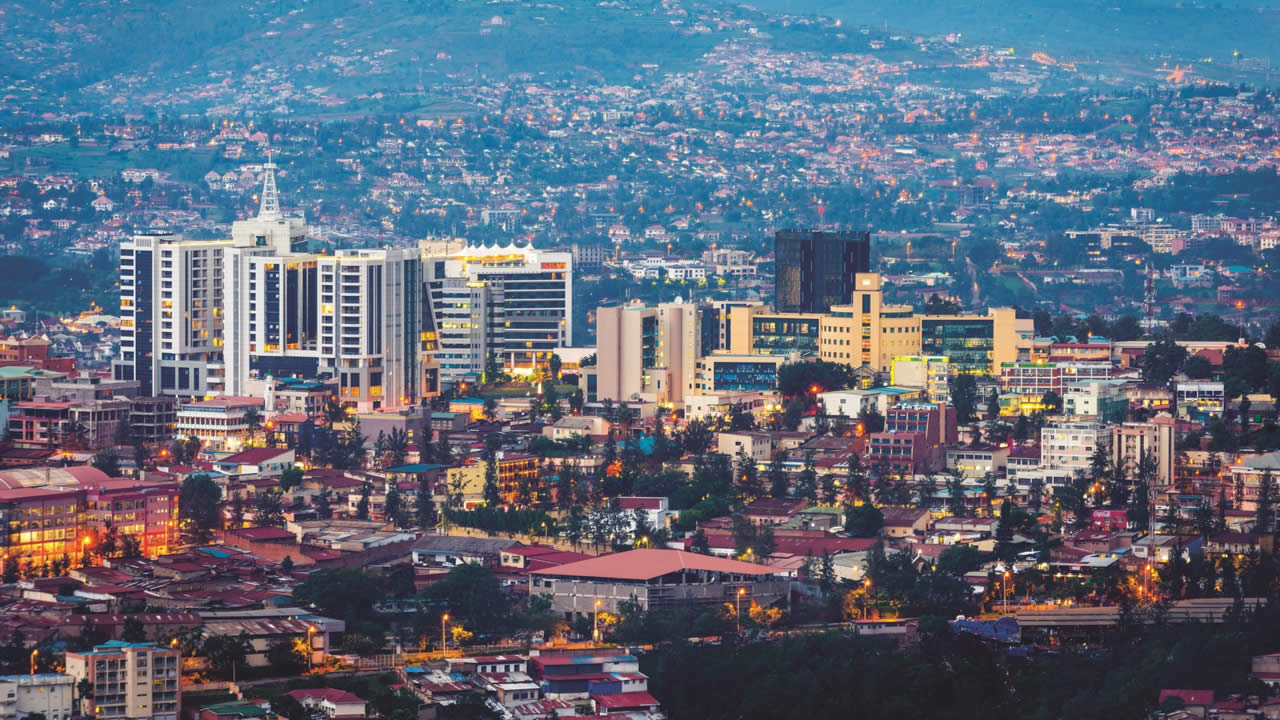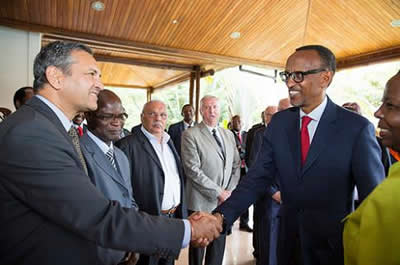
The date of 7th April marks the start of the 1994 genocide in Rwanda, which lasted for 100 days. Every year, on this day, the world commemorates the tragic event that have marked African and global history. Twenty-five years later, Rwanda has seen phenomenal transformation of its society and its economy, with its current President, Paul Kagame, ambitioning to turn Rwanda into a high income country.
During her November 2018 visit to Rwanda, World Bank CEO Kristalina Georgieva described the country as one that has enjoyed impressive growth and often has bold ambitions. Indeed, at most business summits across the globe, Rwanda is the talk of the town among investors. Various speakers have singled it out as one of the emerging economies to look out for in terms of investment opportunities, value for money and economic growth.
Over the past 25 years, the country has reduced reliance on donations and currently, domestically funds about 84% of the budget. President Paul Kagame has successfully led his country from penury to prosperity. The country fares well in global reports and rankings. The most recent Corruption Perceptions Index by Transparency International placed Rwanda as third least corrupt country in Africa.
Rwanda has also moved 11 places to the 29th position in the Ease of Doing Business ranking of the 2019 World Bank report. It ranks second in Africa, after Mauritius, which is at the 20th position globally. In May 2018, the International Congress and Convention Association (ICCA) ranked the capital Kigali as the third most popular conference and event destination on the continent, after Cape Town in South Africa, and Casablanca of Morocco. According to Clare Akamanzi, the Chief Executive of the Rwanda Development Board (RDB), the country collected a total of $42 million from 192 conferences in 2017 and nearly $74 million in 2018.
But what has put Rwanda on this successful path? Following the civil war and political instability, Rwanda started an ambitious rebuilding campaign in 2000 to rebuild, foster national reconciliation and drastically reduce poverty. The government’s agenda gave priority to health, education, infrastructure, and private and financial sector development, showing a real commitment to improving citizens’ living conditions.
Like Mauritius, Rwanda has since long embarked on a major drive to improve its business climate, streamlining its administrative procedures and making the country extremely investor-friendly. While pursuing policies to attract Foreign Direct Investment, President Paul Kagame has also adopted a ‘Made in Rwanda’ strategy in 2016, which has reduced the country’s trade deficit by about 36% and increased the value of total exports by about 69%. Local producers have fast become empowered to produce for the local and export market. Rwandan SMEs are well taken care of by the government. Rwanda has also developed Special Economic Zones to boost its growth. The country’s tourism industry has equally been booming as more and more international visitors travel to this beautiful country also known as the Land of a Thousand Hills, because of the endless mountains. It should be noted that former Finance Minister of Mauritius Ramakrishna Sithanen was, from 2013 to 2017, the Chairman of the Rwanda Development Board, an institution which played an instrumental role in reshaping the country’s economy.
Rwanda at a glance
- Surface area: 26,338 Sq Metres
- Capital City: Kigali
- Languages: English, French, Kinyarwanda, Kiswahili
- Currency: Rwandan Franc
- Exchange Rate: USD 1= 900 RWF
- GDP per capita: $743
- GDP growth: 8%
- Population: 11 Million
- Economy: Services Sector (47%); Agriculture (33%) and Industrial (14%)
Key highlights
- Sustained High Growth – an average 8% GDP year-on-year growth since 2006, with highest GDP growth among major African economies.
- Rwandan Development Board is a one-stop centre for business registration: registration in 6 hours, online
- Rwanda has a government mandated minimum wage, and no worker in Rwanda can be paid less than this mandated minimum rate of pay.
- Untapped Investment Opportunities in Agro-Processing, ICT, Infrastructure, Tourism, Energy, Mining, Services, Real Estate and Construction.
Nikesh Patel : “Rwanda has shown that hatred and differences can be overcome”
 The Honorary Consul for the Republic of Rwanda, Nikesh Patel, who was also Special Adviser, talks to News on Sunday about the Rwandan Genocide, its socioeconomic recovery and the need to enhance cooperation between Mauritius and Rwanda.
The Honorary Consul for the Republic of Rwanda, Nikesh Patel, who was also Special Adviser, talks to News on Sunday about the Rwandan Genocide, its socioeconomic recovery and the need to enhance cooperation between Mauritius and Rwanda.
Last Sunday, the whole world observed a Remembrance Day on the Rwanda Genocide. What lessons can we learn from the tragic events of 1994?
Sunday 7th April marked the 25th anniversary of the 1994 Rwanda Genocide against the Tutsi. In Mauritius, a commemoration event was held on the same day at the ALC campus in Pamplemousses. The lessons to be learnt from the tragedy of 1994 which saw over 1 million people killed in just 100 days, i.e. equivalent to the entire population of Mauritius being annihilated in 100 days, are many. The power of hatred based on apparent differences between people is real and a very destructive force. We must always be vigilant. When one group of people hates and dehumanises, this is a big warning sign. Unfortunately the lessons of Rwanda have not been learnt as since 1994 we have seen the Genocides in Darfur & more recently that of the Yezidi people by ISIS. Whilst early warning signs of impending Genocides can be noticed, since Genocides are very well planned and not instant occurrences, the international community invariably fails to act early enough to mitigate and prevent genocide from taking place. It’s always a case of being too late. With Rwanda, the international community pulled back from Rwanda and never helped the country until after the Genocide was over. Even before the Genocide against the Tutsi began, many people knew exactly what was coming, particularly at the UN. Other countries actively helped in planning and preparation of the genocide. Since 1994, the peoples of Rwanda have reconciled. It has not been an easy process, but the fact that it has happened shows that hatred and differences can be overcome and that is hugely significant.
Is Rwanda today firmly on the path to economic success?
Since 2000, Rwanda’s economy has been growing at an average rate of between 6 to 8% every single year. Indeed, in 2018 a growth rate of 8.6% was registered. Based just on that one metric, one can conclude that the country is well on its way to economic success. But there are other metrics which also indicate that the path to success has been firmly embarked upon. Across many socio-economic metrics such as the World Bank Ease of Doing Business, Governance, Rule of Law, achievement of Millenium Development goals, gender equality, etc, Rwanda occupies a leadership position in all of these, not only for Africa but for some even globally. Many millions of people have and are being lifted out of poverty and Government policy is that Rwanda achieves a middle income status the soonest. The signs are very positive that this will indeed happen.
How can Rwanda and Mauritius further enhance bilateral cooperation?
It is encouraging that more people from both Rwanda and Mauritius are visiting each other’s country, though mostly business people for now; I believe soon tourism visits will also start. Quite a number of Rwandan students are now also studying in Mauritius. A person to people contact is very essential in bilateral cooperation. At a governmental level, there are some interactions but mostly when there are conferences rather than formal visits. From a Mauritius perspective, I believe there are many areas of potential cooperation and collaboration with Rwanda and these need to be explored.
 J'aime
J'aime














